Mexico
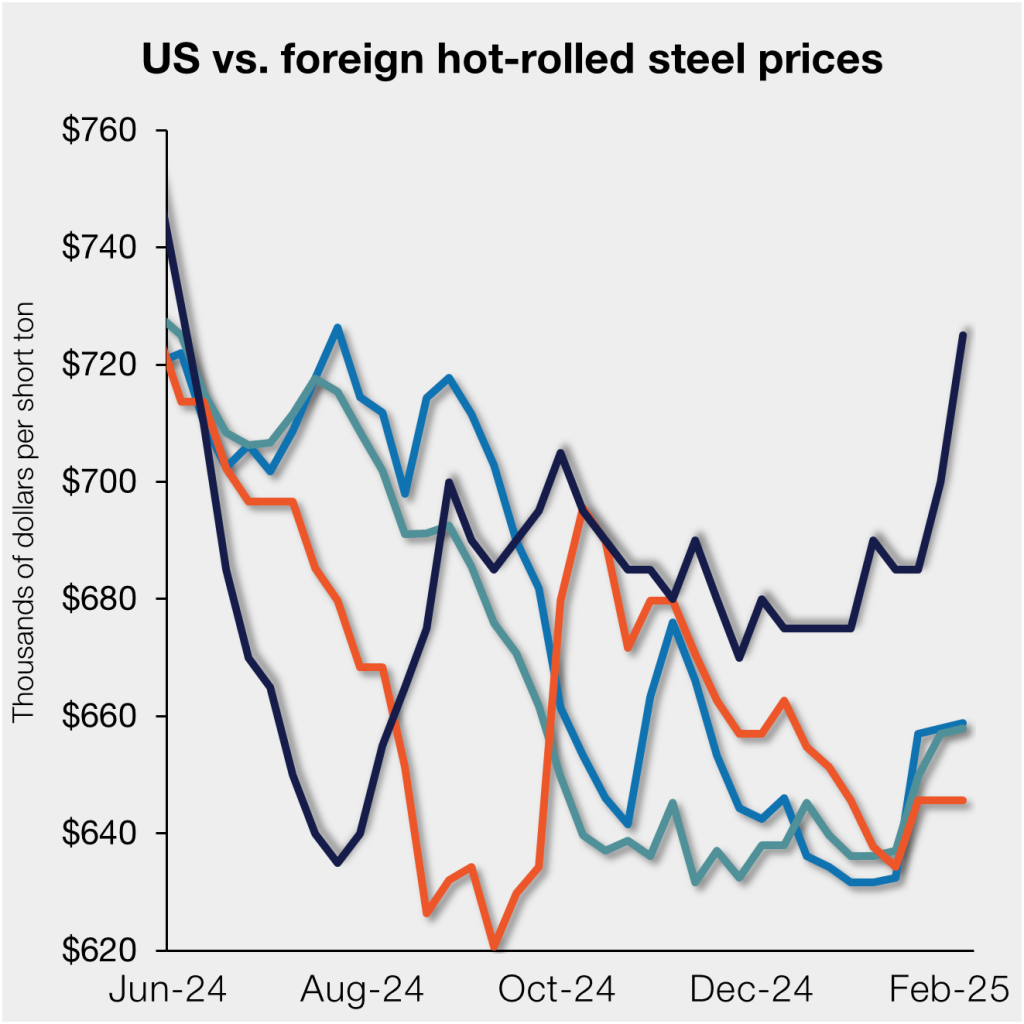
February 6, 2025
US HR prices pulling away from offshore tags
Written by David Schollaert
Hot-rolled (HR) coil prices moved up again in the US this week, while tags abroad were largely flat. The result: the margin US hot band holds over imports on a landed basis widened further.
SMU’s average domestic HR price this week was $725 per short ton (st), up $25/st vs. the week before. Prices are moving higher due to repeated mill price increases and added threats of tariffs on imports from Mexico and Canada. US hot band prices are at the highest point since mid-June.
Domestic HR is now theoretically 9.7% more expensive than imported material, up from 6.6% last week. Recall that US prices were ~12% cheaper than imports last July.
In dollar-per-ton terms, US HR is now, on average, $71/st more expensive than offshore product (see Figure 1). That’s roughly $24/st higher vs. the prior week but still up about $143/st from late July – when US tags were ~$72/st cheaper than offshore material.
The charts below compare HR prices in the US, Germany, Italy, and Asia. The left side highlights prices over the last two years and the right side zooms in to show more recent trends.
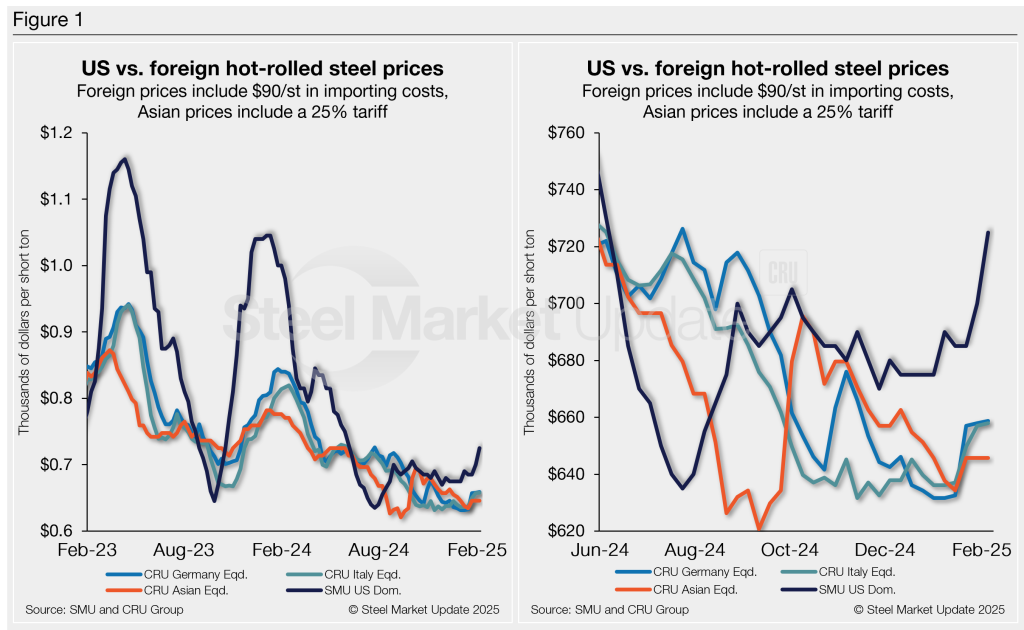
Methodology
This is how SMU calculates the theoretical spread between domestic HR coil prices (FOB domestic mills) and foreign HR coil prices (delivered to US ports): We compare SMU’s weekly US HR assessment to the CRU HR weekly indices for Germany, Italy, and East and Southeast Asian ports. This is only a theoretical calculation. Import costs can vary greatly, influencing the true market spread.
We add $90/st to all foreign prices as a rough means of accounting for freight costs, handling, and trader margin. This gives us an approximate CIF US ports price to compare to the SMU domestic HR coil price. Buyers should use our $90/st figure as a benchmark and adjust up or down based on their own shipping and handling costs.
If you import steel and want to share your thoughts on these costs, please get in touch with the author at david@steelmarketupdate.com.
Asian HRC (East and Southeast Asian ports)
As of Thursday, Feb. 6, the CRU Asian HRC price was $445/st, flat vs. the week prior. Adding a 25% tariff and $90/st in estimated import costs, the delivered price of Asian HRC to the US is ~$646/st. As noted above, the latest SMU US HR price is $725/st on average.
The result: Prices for US-produced HR are theoretically $79/st higher than steel imported from Asia – roughly $25/st higher week over week (w/w). The premium is still significantly lower than about a year ago when US HR was as much as $281/st more expensive than Asian products.
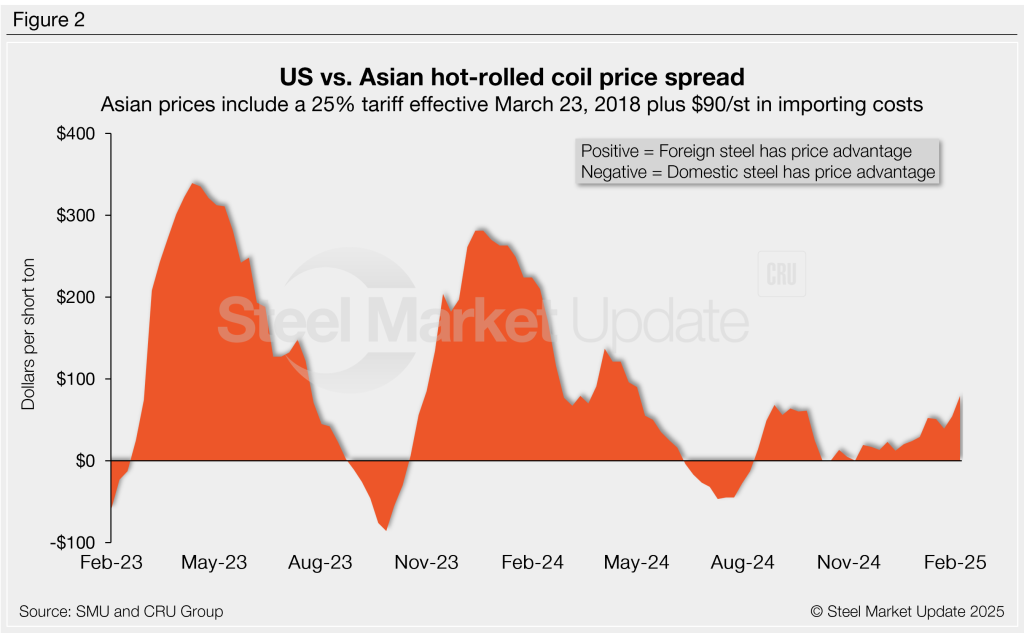
Italian HRC
Italian HR prices were just $1/st higher this week at $568/st, according to CRU. After adding import costs, the delivered price of Italian HR is, in theory, $658/st.
That means domestic HR coil is theoretically $67/st more expensive than imports from Italy. With Italian and US tags no longer trending in the same direction, the spread is $24/st higher w/w. Recall that US HR was $297/st more costly than Italian hot band a year ago.
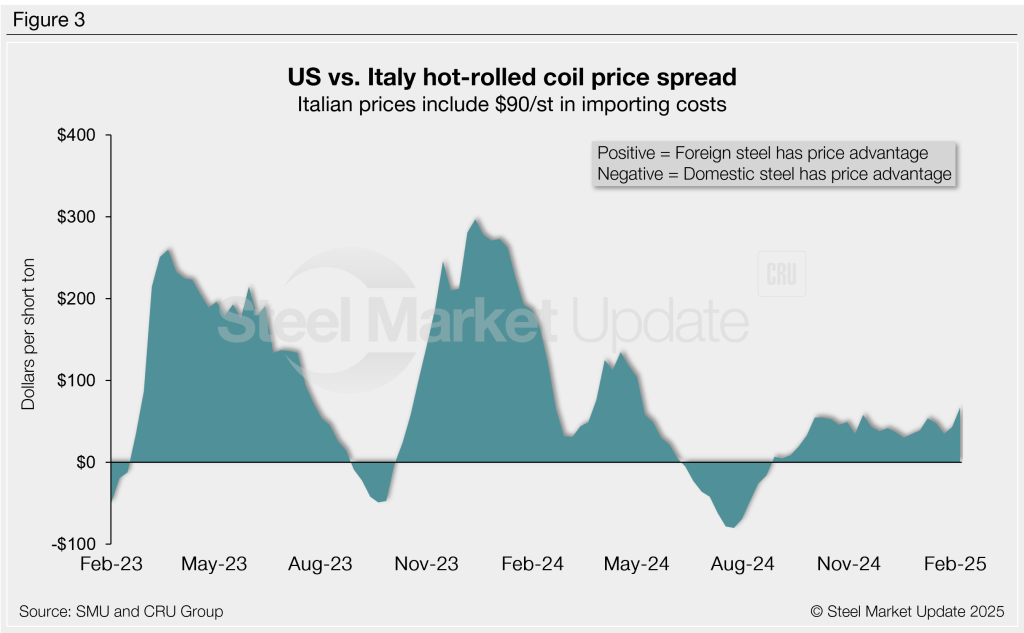
German HRC
CRU’s German HR price was largely flat, also up just $1/st to $569/st this week. After adding import costs, the delivered price of German HR coil is, in theory, $659/st.
The result: Domestic HR is theoretically $66/st more expensive than HR imported from Germany, up $24/st from last week. Stateside hot band was at an $18/st discount about four months ago. At points in 2023, in contrast, US HR was as much as $265/st more expensive than imported German hot band.
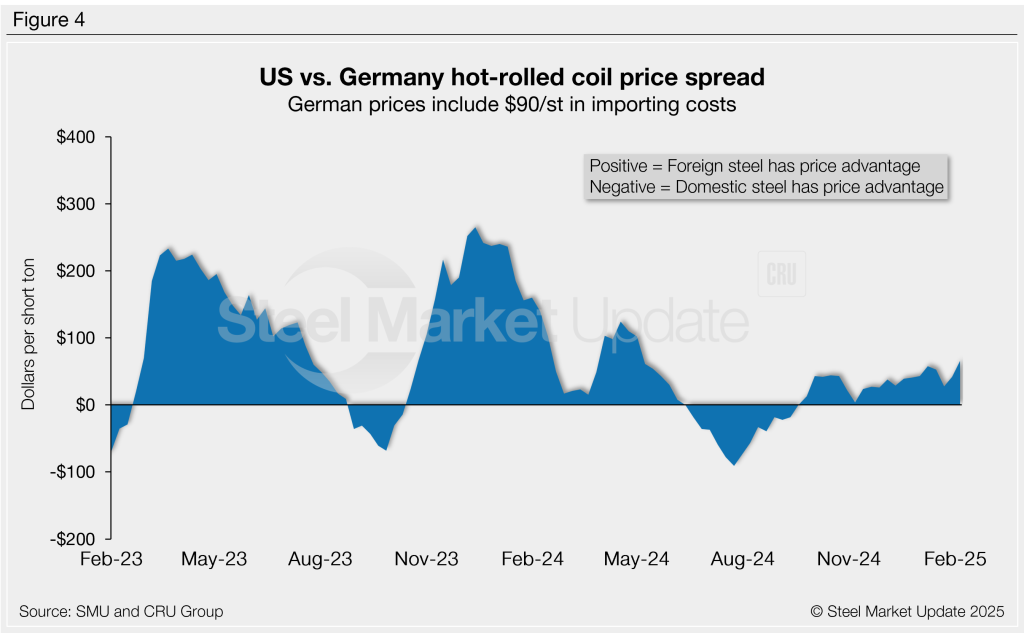
Notes: Freight is important when deciding whether to import foreign steel or buy from a domestic mill. Domestic prices are referenced as FOB the producing mill. Foreign prices are CIF, the port (Houston, NOLA, Savannah, Los Angeles, Camden, etc.). Inland freight, from either a domestic mill or from the port, can dramatically impact the competitiveness of both domestic and foreign steel. It’s also important to factor in lead times. In most markets, domestic steel will deliver more quickly than foreign steel. Effective Jan. 1, 2022, Section 232 tariffs no longer apply to most imports from the European Union. It has been replaced by a tariff rate quota (TRQ). Therefore, the German and Italian price comparisons in this analysis no longer include a 25% tariff. SMU still includes the 25% Section 232 tariff on prices from other countries. We do not include any antidumping (AD) or countervailing duties (CVD) in this analysis.






